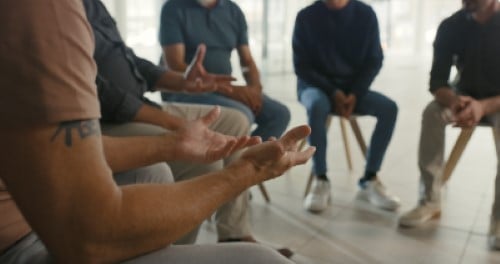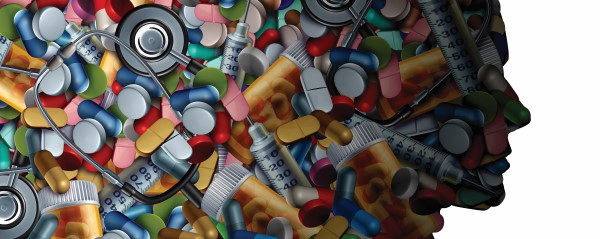Navigating the Emotional Journey: Coping with Patient Death in Medical Training
Dakota Burke, MS IV
Ashley Sholmire, OMS IV
Isabella Maki, MS IV
Often, a medical student's first visceral experience with death is during a clerkship rotation. These experiences vary immensely between students and facilities, and no two experiences are the same. This may be the soft-spoken elderly woman who presents to the emergency department due to leg swelling, and the next day she develops such severe pulmonary edema that no respiratory intervention was enough to bring her oxygen levels back up. Or this could be the three-hour C-section with the baby that was born just a little too early and hasn’t been able to take its first breath despite everyone's best efforts. Or this could be the young boy who accidentally wound up in a high-speed MVC that caused rapid bleeding that couldn’t be stopped in time.
Regardless of how the experience transpires, a student’s first experience with death is incredibly memorable and emotional3. Some students shed tears, some confide in those closest to them, some seek out professional counseling services. And yet others refrain from discussing the situation in the hopes that it doesn’t take too much of an emotional toll on themselves4. No matter how students choose to deal with death in the workplace, it is important to know about the options available to them because intense emotional and psychological stress has been linked to increased rates of burnout and overall lower quality of life10.
Death occurring in the emergency department is unfortunately commonplace, with some physicians experiencing the death of a patient on a monthly basis11. The patients come in, already on the brink of death, and the staff of the ED rapidly get to work with resuscitation in the hopes of tipping the scales in the patient’s favor. While many times they are successful, sometimes they are not - the patient was too badly hurt, too sick, or too close to death. Often, these cases occur so suddenly that it brings a feeling of shock to students. In fact, a small study showed that students who experience a patient death in the ED feel more shocked or surprised and believe the death to be unexpected, especially compared to other experiences in an inpatient setting8.
Few studies have investigated the role of death on medical students3. Typically, research focuses on the practicing providers or the physicians in training. Fewer studies have investigated the effect of death in the emergency department and instead emphasize inpatient or surgical specialties. Despite this gap in research and knowledge, some of the studies that have been performed can be generalized to medical students and the emergency department, which may be useful when investigating the mental and emotional toll of death.
These studies stress the following tools when coping with death while in the ED:
Debriefing:
Studies performed in various specialties have looked at the effect of debriefing after traumatic experiences in the workplace, especially death, and have found positive results2,5,7. The debriefing may be formal as a potentially rigorous focus group and typically takes place immediately post-event with a designated group of participants11. These are often structured and not time intensive so as to not disrupt anyone's workflow. Debriefing could look more free-flowing and casual, taking place behind closed doors with the ones closest to you. It can also be scheduled time to discuss events with other classmates in small group sessions. Research has shown that talking about death and dying in medicine has consistently been the preferred way of coping and improving emotional and psychological well-being2,5. They note the importance of real-time, brief, consistent sessions that helped the residents cope with patient deaths but also established a line of communication among the staff to foster future relationships7.
Hospital-wide memorial services:
Originally started at Johns Hopkins University for the internal medicine residency program, patient memorial services involve a designated service once a year where medical students, residents, and providers can reflect on the intense emotions after experiencing patient death. These memorial services were scheduled in-lieu of a didactic session to not take up any extra time for the residents. Studies reviewing the benefits of these events have shown it to positively impact residents and providers in dealing with the emotional and psychological toll of death. These events create supportive environments that allow these medical providers to reflect and could help formulate closure1. The patient memorial services facilitate a sense of team within the department, showing medical professionals and students that grieving does not have to be done in isolation9.
Finding personalized ways to decompress:
While most data supporting individualized approaches to emotional and mental decompression are subjective, personalized coping could have merit. Data has repeatedly shown that medical practitioners have vastly different coping practices or bereavement practices that they routinely use. This varies drastically and is affected by age, gender, past experiences, specialty, and training, among other things. A study looking at ways in which providers have stated they prefer to cope with death of a patient includes confiding in others, spending alone time or time spent doing enjoyable hobbies, seeking out spiritual or religious guidance, or even formal case reviews to find mental closure2.
This article only briefly touches on a few options available to medical students and residents who are experiencing death in the emergency department. Not all options are employed at every institution, and not every modality for coping or decompression works for every provider. Knowing that emotional and psychological stress can lead to a lower quality of life and higher rates of burnout, it is paramount for medical students and residents to learn their preferred strategies early to avoid complications in their later career. Therefore, it seems most logical that a “mixed bag” approach to dealing with the death of a patient may be the most effective and sustainable approach. Knowing the most readily available tools at your institution and practicing structured group sessions in time-efficient ways can lessen the effect of burnout and improve quality of life as you progress through your career. These efforts allow death to be a conversation rather than a taboo, which changes how medical students, residents, and physicians in the ED process these memorable and emotional experiences.
References
- Schoenborn NL, Cheng MJ, Christmas C. A memorial service to provide reflection on patient death during residency. J Grad Med Educ. 2013;5(4):686-688. doi:10.4300/JGME-D-12-00322.1
- Heiner JD, Trabulsy ME. Coping With the Death of a Patient in the Emergency Department. Annals of Emergency Medicine. 2011;58(3):295-298. doi:10.1016/j.annemergmed.2010.12.022
- Pessagno R, Foote CE, Aponte R. Dealing with death: medical students’ experiences with patient loss. Omega (Westport). 2013;68(3):207-228. doi:10.2190/om.68.3.b
- Kelly E, Nisker J. Medical students’ first clinical experiences of death. Medical Education. 2010;44(4):421-428. doi:10.1111/j.1365-2923.2009.03603.x
- Serwint JR. One method of coping: resident debriefing after the death of a patient. J Pediatr. 2004;145(2):229-234. doi:10.1016/j.jpeds.2004.04.055
- Eng J, Schulman E, Jhanwar SM, Shah MK. Patient Death Debriefing Sessions to Support Residents’ Emotional Reactions to Patient Deaths. J Grad Med Educ. 2015;7(3):430-436. doi:10.4300/JGME-D-14-00544.1
- Batley NJ, Bakhti R, Chami A, et al. The effect of patient death on medical students in the emergency department. BMC Med Educ. 2017;17(1):110. doi:10.1186/s12909-017-0945-9
- Oakman N, Lim J, Bui C, Kaplan H, Sherman S. When patients die: patient memorials and group reflection in an internal medicine residency program. Proc (Bayl Univ Med Cent). 2020;34(1):56-58. Published 2020 Sep 28. doi:10.1080/08998280.2020.1818164
- West, C. P., Shanafelt, T. D., & Kolars, J. C. (2011). Quality of life, Burnout, educational debt, and medical knowledge among internal medicine residents. JAMA, 306(9). https://doi.org/10.1001/jama.2011.1247
- Strote, J., Schroeder, E., Lemos, J., Paganelli, R., Solberg, J., & Range Hutson, H. (2011). Academic emergency physicians’ experiences with patient death. Academic Emergency Medicine, 18(3), 255–260. https://doi.org/10.1111/j.1553-2712.2011.01004.x
Related Content

Jan 23, 2023
The Betty Bubble: A Week at the Hazelden Betty Ford Addiction Treatment Center
Addiction is a disease that responds to treatment. We must offer services to all patients no matter how many times it takes them to accept help. Who’s to say that attempt number 30 isn’t the one that will finally work? In the ED, we see only a snapshot of one’s addiction, but it is important to remember that each patient has an entire story, and we can help change the ending.

Apr 04, 2023
The Ethics of Caring for an Unfavorable Patient
Debriefing, leaning on peers, and seeking mental health help are all important steps in caring for unfavorable patients. Acknowledge the emotional toll that this may take on you, approach the situation in a systematic format, and define your role as a physician to help mitigate the psychological impact in these scenarios and ultimately promote ethical care.

Oct 16, 2023
Factitious Disorder Manifesting as Acute Tetanus
Our case highlights the importance of recognizing factitious disorder as early as possible and connecting these patients with appropriate resources, as even specialists have difficulty diagnosing and managing this condition.5-7 Undiagnosed factitious disorder is a tremendous burden on our already strained health care system and exposes our patients to unnecessary invasive procedures fraught with risk. Our case also demonstrates the fallibility of the EMR — something rarely considered in this era as the EMR becomes more prevalent and our systems more connected. A high index of suspicion and repetitive examination of assumptions are critical to successful diagnosis and management of factitious disorder.




